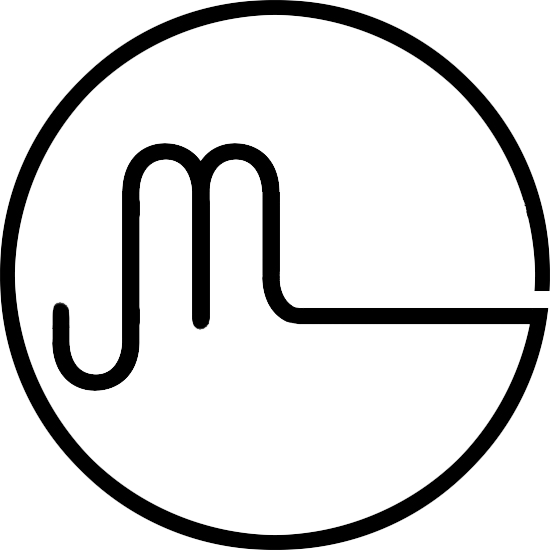Nocturia and Dysfunctional Breathing: Understanding the Connection
Nocturia, the frequent need to urinate during the night, is a common condition that affects sleep quality and overall well-being. While nocturia is often associated with bladder or prostate issues, emerging research highlights a lesser-known connection between nocturia and dysfunctional breathing patterns, particularly mouth breathing. This article explores how dysfunctional breathing, including mouth breathing, can exacerbate nocturia and how anxiety plays a role in this complex relationship.
Understanding Nocturia
Nocturia is defined as waking up one or more times during the night to urinate. For many individuals, this disruption can lead to fragmented sleep, resulting in daytime fatigue, reduced cognitive function, and a lower quality of life. While nocturia is frequently attributed to urological issues such as overactive bladder or benign prostatic hyperplasia, it is essential to consider the role of breathing patterns, particularly those that are dysfunctional.
Dysfunctional Breathing and Its Impact
Dysfunctional breathing refers to abnormal breathing patterns that do not align with the body’s physiological needs. These patterns can include hyperventilation, shallow breathing, or chronic mouth breathing. Dysfunctional breathing often leads to poor oxygen exchange, which can impact various bodily functions, including sleep and urinary control.
The Link Between Mouth Breathing and Nocturia
Mouth breathing, a common form of dysfunctional breathing, is often associated with airway obstruction, allergies, or chronic nasal congestion. When individuals breathe through their mouths, especially during sleep, it can lead to several issues that may contribute to nocturia.
Dehydration and Increased Urine Production: Mouth breathing leads to a dry mouth and throat, causing dehydration. In response, the body may attempt to conserve water by producing less concentrated urine. This process can result in increased urine output during the night, contributing to nocturia.
Disturbed Sleep and Bladder Function: Mouth breathing often leads to sleep disturbances, including obstructive sleep apnea (OSA). OSA is a condition where the airway becomes repeatedly blocked during sleep, leading to brief awakenings and fragmented sleep. This lack of restful sleep can disrupt the normal functioning of the bladder, leading to an increased frequency of nocturnal urination.
Increased Stress Response: Mouth breathing is less efficient than nasal breathing in activating the parasympathetic nervous system, which is responsible for rest and digestion. Instead, mouth breathing can trigger a stress response, increasing cortisol levels. This stress response can indirectly contribute to nocturia by increasing the production of urine and enhancing the sensation of needing to urinate.
Anxiety, Dysfunctional Breathing, and Nocturia
Anxiety is another critical factor that links dysfunctional breathing and nocturia. Anxiety can lead to chronic hyperventilation, a form of dysfunctional breathing characterized by rapid, shallow breaths. This hyperventilation can exacerbate the body’s stress response, leading to the following effects:
Increased Urine Production: Anxiety triggers the release of stress hormones such as cortisol and adrenaline, which can increase urine production. When combined with dysfunctional breathing patterns, this effect can become more pronounced, leading to nocturia.
Heightened Sensation of Bladder Fullness: Anxiety can heighten bodily sensations, making individuals more sensitive to the feeling of bladder fullness. This increased sensitivity can lead to more frequent awakenings during the night to urinate.
Sleep Disturbances: Anxiety often leads to sleep disturbances, including difficulty falling asleep, frequent awakenings, and poor sleep quality. As sleep becomes more fragmented, the likelihood of experiencing nocturia increases.
Addressing Dysfunctional Breathing to Reduce Nocturia
Given the complex relationship between nocturia, dysfunctional breathing, and anxiety, addressing breathing patterns is crucial in managing nocturia. Here are some strategies that may help:
Breathing Retraining: Techniques such as diaphragmatic breathing and Buteyko breathing can help correct dysfunctional breathing patterns. These exercises encourage nasal breathing, improve oxygen exchange, and promote relaxation, which may reduce nocturia.
Treating Underlying Conditions: Managing conditions that contribute to mouth breathing, such as nasal congestion or sleep apnea, can significantly reduce the incidence of nocturia. Treatments may include nasal decongestants, continuous positive airway pressure (CPAP) therapy for OSA, or surgery in severe cases.
Anxiety Management: Since anxiety can exacerbate dysfunctional breathing and nocturia, incorporating stress management techniques such as mindfulness, cognitive-behavioral therapy (CBT), or relaxation exercises can be beneficial. Reducing anxiety levels can lead to better sleep quality and a decrease in nocturia episodes.
Conclusion
The relationship between nocturia, dysfunctional breathing, and anxiety is complex and multifaceted. Mouth breathing, as a form of dysfunctional breathing, can contribute to dehydration, sleep disturbances, and an increased stress response, all of which may exacerbate nocturia. Additionally, anxiety plays a significant role in both dysfunctional breathing and nocturia by increasing urine production and sensitivity to bladder fullness. Addressing dysfunctional breathing patterns and managing anxiety can be effective strategies in reducing nocturia, ultimately improving sleep quality and overall well-being.
References
Herr, H.W. “Nocturia: A Clinically Significant, but Often Overlooked, Symptom of Aging.” Urologic Clinics of North America, vol. 28, no. 3, 2001, pp. 503-511.
Courtney, R. “Dysfunctional Breathing: Its Parameters, Measurement, and Relevance.” Journal of Bodywork and Movement Therapies, vol. 13, no. 1, 2009, pp. 24-34.
Kheirandish-Gozal, L., and Gozal, D. “Obstructive Sleep Apnea and Inflammation: Proof of Concept Based on Two Illustrative Cytokines.” International Journal of Molecular Sciences, vol. 20, no. 13, 2019, p. 3437.
Drake, M.J., et al. “Nocturia: The Complex Interaction of Sleep, Circadian Rhythms and the Urinary Tract.” Nature Reviews Urology, vol. 11, no. 9, 2014, pp. 509-519.
Brown, M.A., et al. “Anxiety Disorders and Sleep Disturbance: Anxiety and Dissociation.” Current Psychiatry Reports, vol. 15, no. 6, 2013, p. 368.
